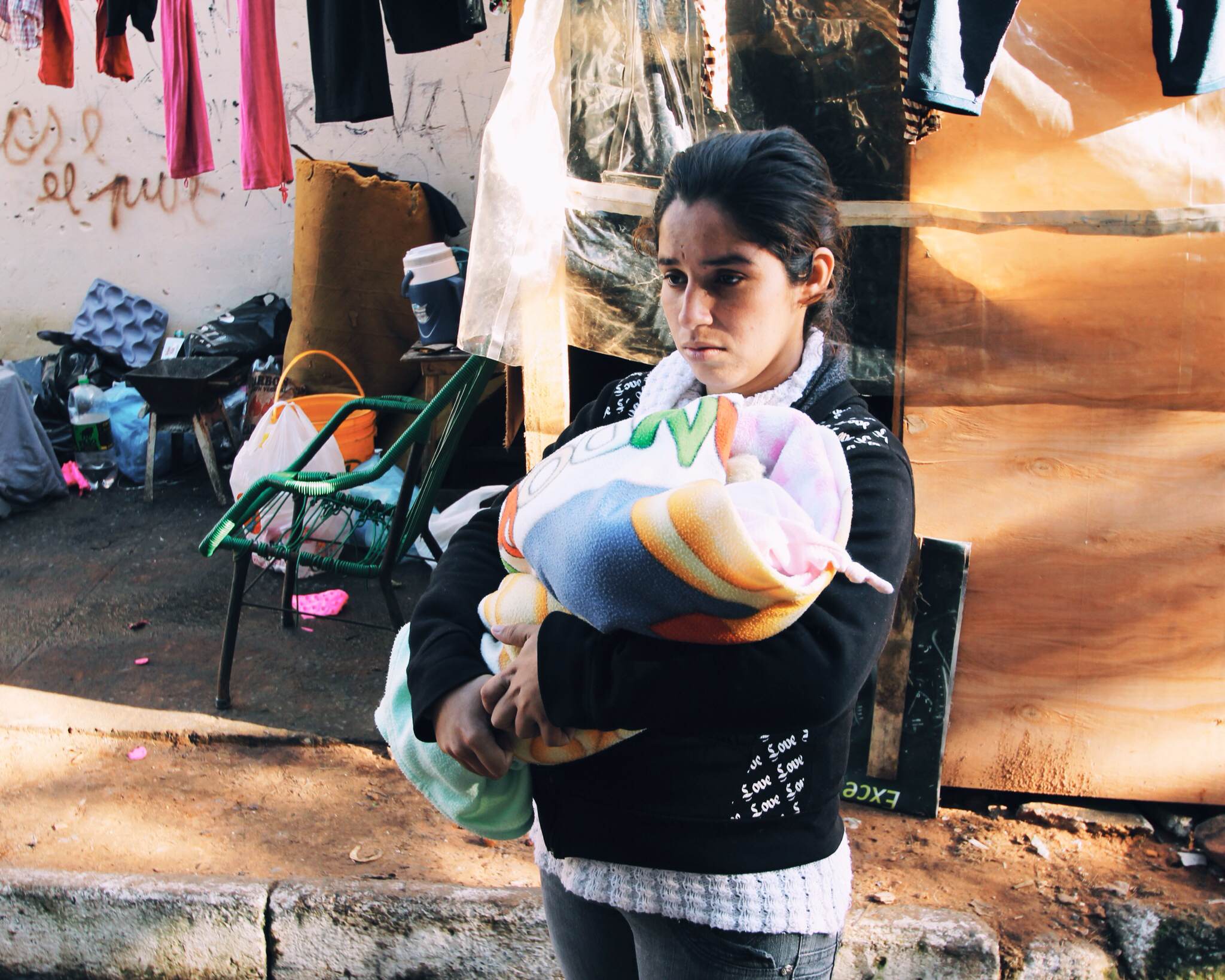As I gathered statistics from people settled in their makeshift homes made of madera (wood) and chapa (scrap metal), I came across a family that was different from the others.
Ready to fire away all the questions about her home, she stopped me to inform me that she has no home. We were standing in the middle of the paths between the tightly packed homes and in a hurry to get the survey form filled as quickly as possible, I hadn’t realized she was staying with a friend and was homeless. I realized that seeing her holding a baby as a mother with a husband made me automatically think that she had a home, which made me think of the way we approach and react to such situations as Americans.

On top of being homeless, her baby was a mere 20 days old and was malnourished. My group and I suddenly perked up at the sound of that, feeling a sense of urgency and vitality towards the family, immediately calling over Julio, one of the leaders of El Centro Comunitario de Santa Ana. Julio’s face showed a hardened misery when hearing the news of this family, and after hearing it, his expression didn’t change, not because the news didn’t affect him, but because he had already heard perhaps a dozen situations like this or worse. His face simply could not show any more worry or compassion.
As Americans serving in a foreign environment with a fresh natural disaster, we tend to act with our hearts, going off of whims, and getting a personal sense of urgency when confronted with these strange alienating situations. For Julio, Pablo, Domingo and other leaders serving on the ground for 6 weeks are more thoughtful of the realities these communities face, and focus their eyes on the bigger picture. Instead of seeing one homeless woman with a starving child, in their minds, they’re thinking of how to serve everyone without spending too many of the limited resources on one case. Being a community leader in a time of natural disaster, with a government that does little to help its people is a constant battle between collecting statistics and connecting emotionally to the people they love.
Today as we fly home to the US, instead of feeling depressed about the fact that I cannot impact or control the fate of this family, I feel confident leaving this community I’ve come to love knowing that people like Julio, Pablo, and Domingo are here to stay.
Xavier, 16, Rockville High School

One thought on “Paraguay 2014, Day 16 – Julio, Pablo, & Domingo”